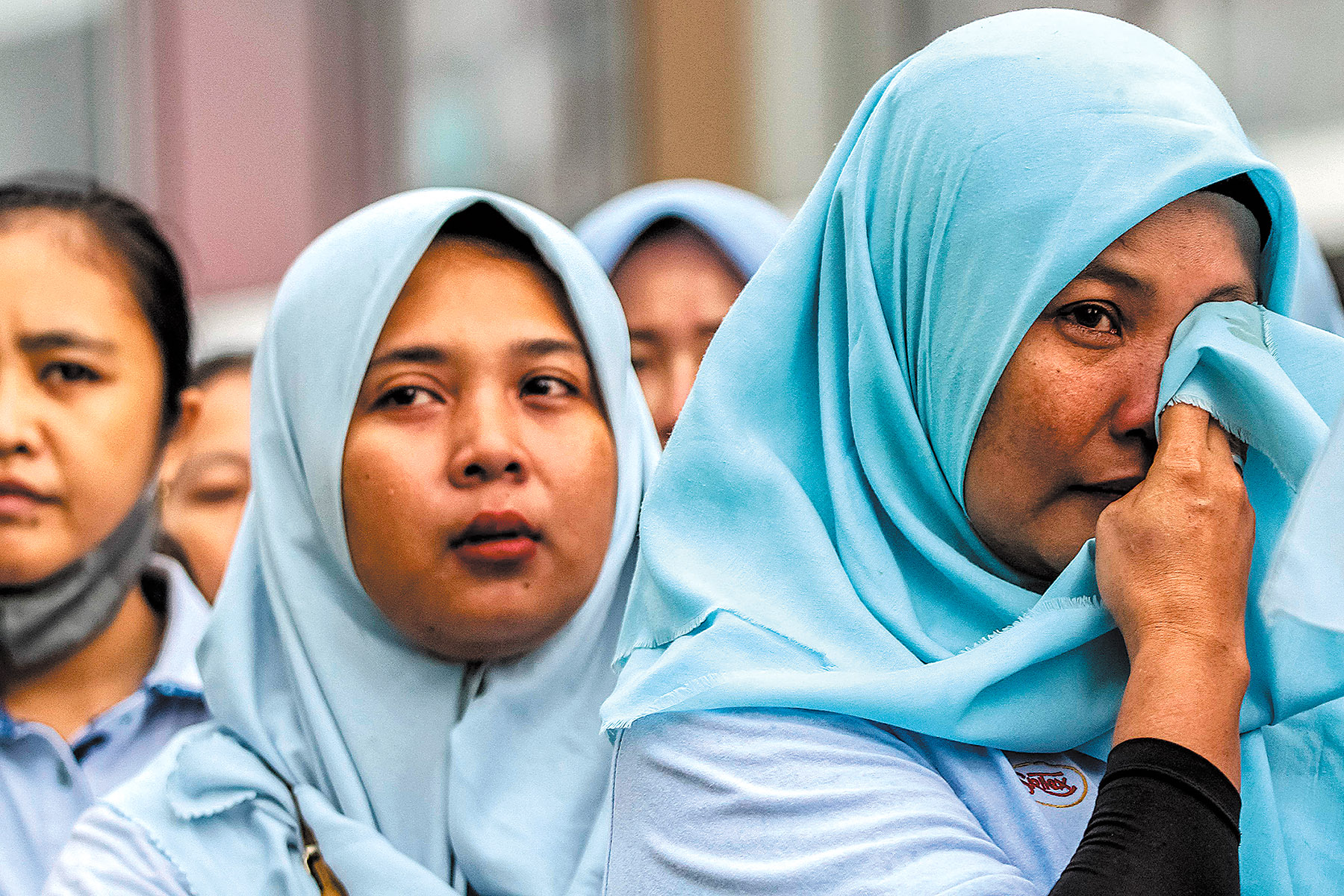Layoffs surge in manufacturing, retail in Indonesia, government figures show

Editor's note: In this weekly feature China Daily gives voice to Asia and its people. The stories presented come mainly from the Asia News Network (ANN), of which China Daily is among its 20 leading titles.
Factories are shutting down, once-bustling industrial zones are falling silent, and thousands of workers are being forced to pack their belongings with little certainty about their future. Indonesia is facing one of its most severe waves of mass layoffs in recent years.
The Indonesian Manpower Ministry has logged a 32.1 percent jump in layoffs in the first half of 2025 compared to the same period last year, mainly concentrated in the manufacturing, retail and mining industries.
A total of 42,385 workers were laid off in the six months between January and June, up from 32,064 during the same period in 2024, according to figures published on the government's Satu Data portal.
READ MORE: Indonesia's textile makers struggle amid US tariffs
While the ministry's figures do not present a complete picture of hiring and firing in the country, where the informal sector contributes a large part to national economic activity, they are watched as an indicator of employment trends in various industries.
Manpower Minister Yassierli attributed the layoff surge to multiple factors, including weaker demand, production cuts, business model shifts and internal corporate problems.
"I have been saying there are many causes of layoffs," Yassierli said as quoted by Kompas, Indonesian national newspaper.
"That's because some industries are experiencing a market downturn, some companies have shifted their business models, and in some cases, there are internal issues, including industrial relations and so on," he said.
Yassierli also revealed plans to begin publishing monthly layoff statistics, similar to how statistics agency releases regular updates on trade and economic growth.
"With regular publication of layoff data, the government and other stakeholders can better anticipate labor market disruptions and proactively work to prevent layoffs or create new job opportunities," he added.
Anwar Sanusi, head of the ministry's planning and development agency, said the sharp rise was due in part to mass layoffs at several companies at the beginning of the year.
Despite the annual increase, he noted a significant improvement in the month-to-month figure, which logged a 65 percent decline from 4,702 workers in May to 1,609 in June.
"There may be factors related to unresolved layoff processes," Sanusi added, saying the ministry was still studying the cause of the monthly drop in June.
Job losses
He also noted that the manufacturing sector recorded the most job losses in the first six months of the year, with 22,671 workers laid off, followed by the wholesale and retail trade sector, and then the mining and quarrying sector.
By region, the most affected by job cuts during the period were Central Java with 10,995 workers, followed by West Java with 9,494 and Banten with 4,267.
The three provinces, which are home to a dense concentration of factories and industrial zones, are among the country's key industrial centers.
West Java alone accounts for around 60 percent of the national manufacturing output. In Central Java, the manufacturing sector makes up a significant share of the provincial GDP, while Banten benefits from a cluster of heavy industries as well as Merak Port in Cilegon.
Manufacturers remain downbeat about growth prospects as soft domestic demand weighs on output, purchasing and employment.
Indonesia's manufacturing Purchasing Managers' Index, or PMI, slipped to 46.9 in June from 47.4 in May, the second-lowest reading since August 2021 after April 2025. It was also the third consecutive month that the index remained below the 50-point threshold between expansion and contraction.
The PMI report also noted that employment shrank for the second time in three months and at the sharpest pace in nearly four years as firms scaled back hiring.
Call on supports
Employers have called on the government to ramp up support for domestic firms to stay afloat and remain competitive, as widespread layoffs reflect investor concerns over an uncertain economic outlook.
At least half of all businesses nationwide have carried out layoffs so far this year, according to a new report from the Indonesian Employers Association, or Apindo.
"We all agree that these layoffs are not isolated incidents. They are real, ongoing and will continue to unfold," Apindo chairwoman Shinta Kamdani told a press briefing in July in Jakarta.
ALSO READ: Report: S’pore, Indonesia, M’sia face medium risk of severe haze in 2025
"This isn't just about numbers. …When our (United States-imposed tariff) rate is not better than that imposed on competitors and orders shift elsewhere, it will hurt our labor force even more," Shinta said.
She was referring to the 19 percent "reciprocal" duty imposed by US President Donald Trump on Indonesian goods shipped to the US.
To help companies preserve cash flow, maintain production levels and avoid further layoffs, Apindo proposed a set of fiscal incentives.
These include a value-added tax exemption on subcontracting services and raw materials, faster processing of value-added tax refunds, lower import duties on industrial inputs and the expansion of employee income tax waivers.
The business group also called for broader access to competitive financing, such as lower-interest credit lines, as well as stimulus measures aimed at reducing operational costs.
These include a labor stimulus through Health Care and Social Security Agency subsidies, energy cost relief through discounts on electricity and gas prices and incentives for installing solar panels using net-metering schemes.


